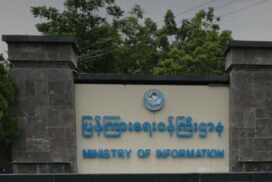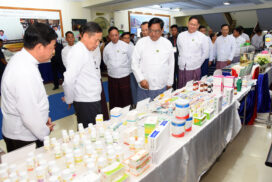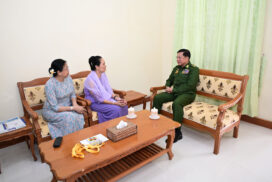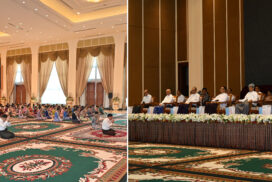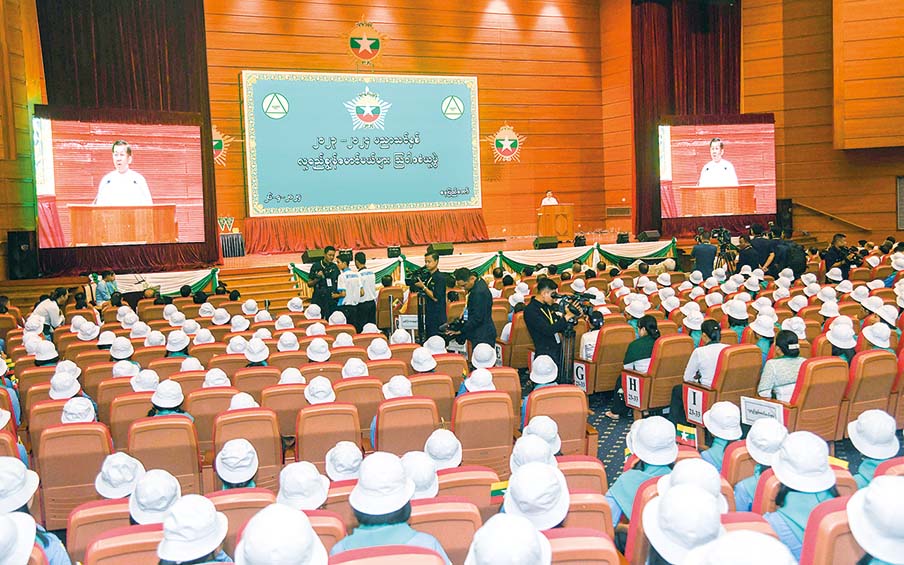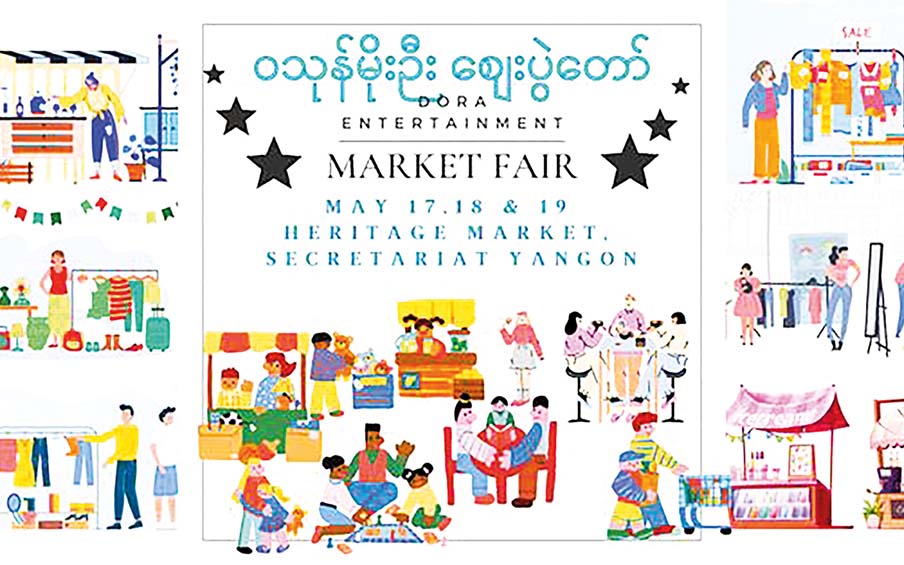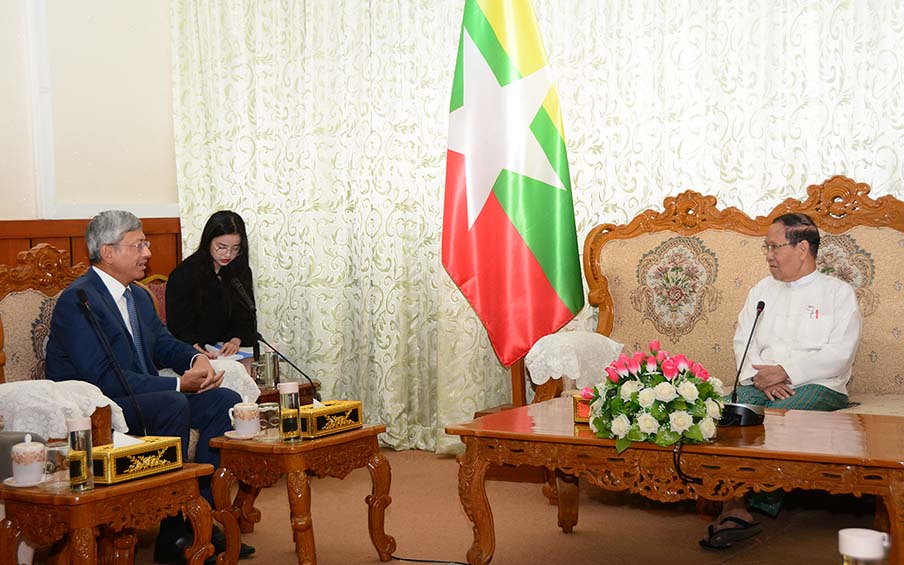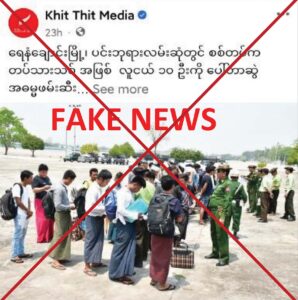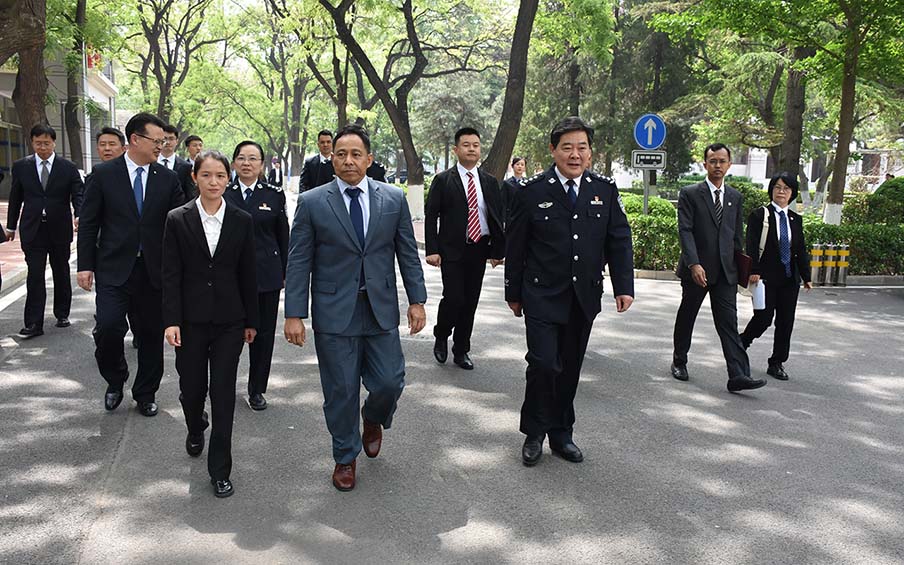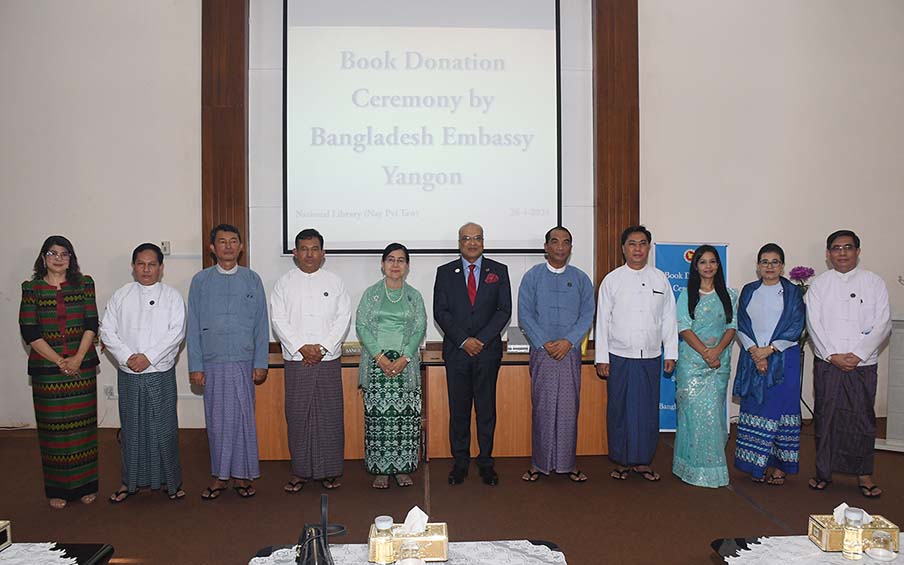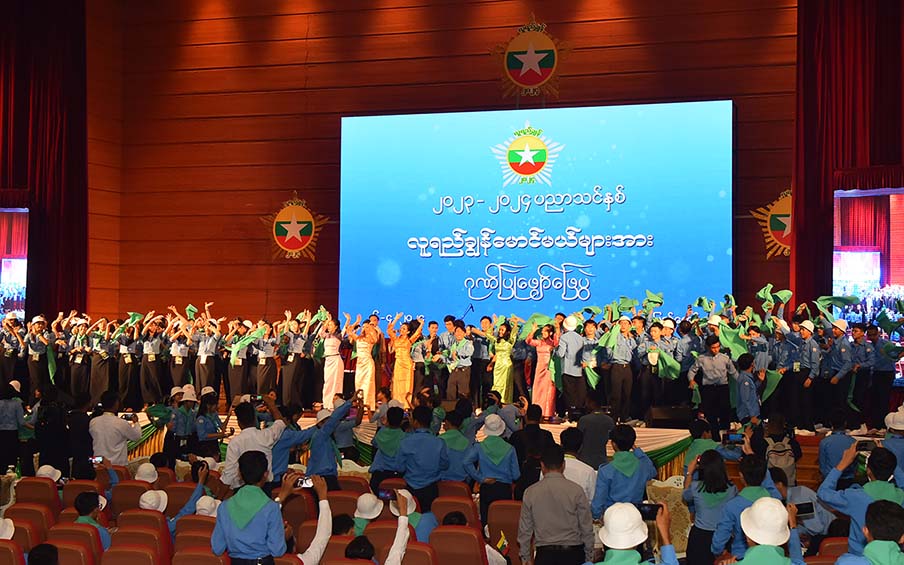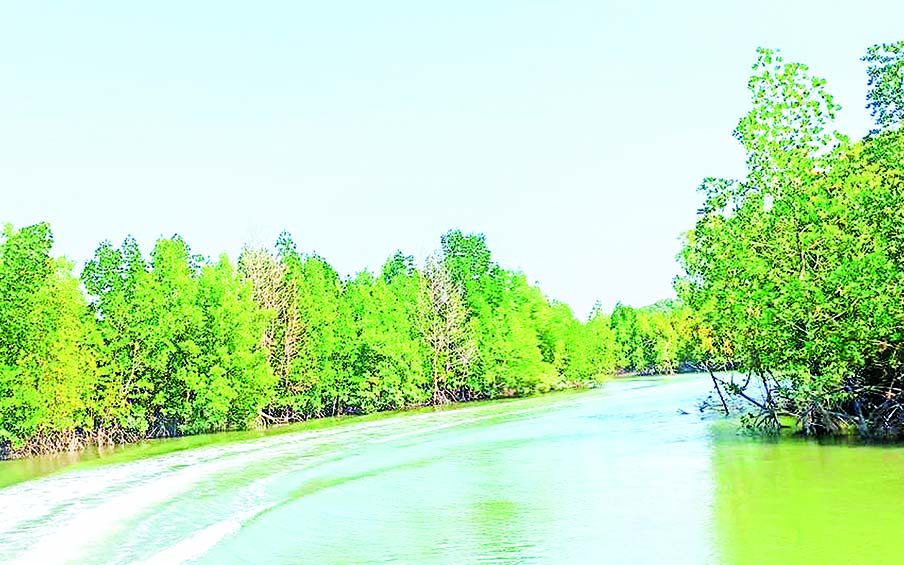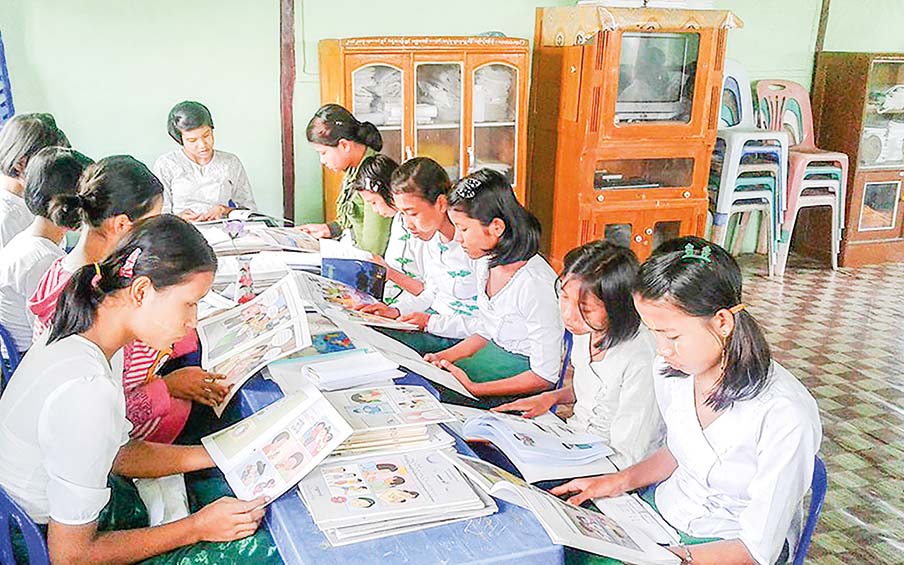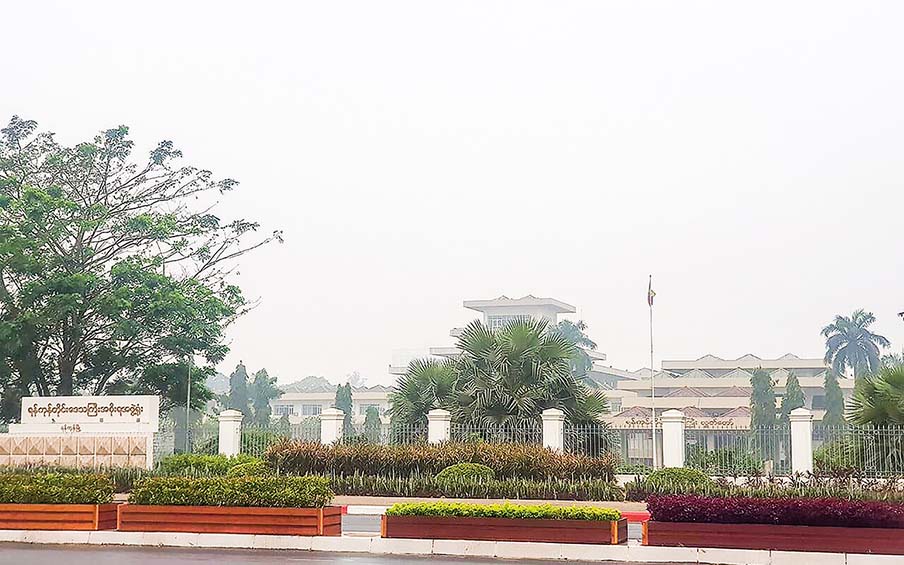National Unity and Peace Restoration Central Committee holds meeting 1/2021
The National Unity and Peace Restoration Central Committee held its meeting 1/2021 at the office of the State Administration Council in Nay Pyi Taw yesterday, with an address delivered by Chairman of the Central Committee Chairman of the State Administration Council Commander-in-Chief of Defence Services Senior General Min Aung Hlaing.
Also present at the meeting were Vice-Chairman of the Council Vice-Chairman of the Central Committee, Deputy Commander-in-Chief of Defence Services Commander-in-Chief (Army) Vice-Senior General Soe Win, members of the Central Committee General Mya Tun Oo, Admiral Tin Aung San, General Maung Maung Kyaw, Lt-Gen Moe Myint Tun, Mahn Nyein Maung, Daw Aye Nu Sein, Jeng Phang Naw Taung, U Sai Lone Hsaing, Saw Daniel, Union Minister for Home Affairs and Union Minister at the Government’s Office Lt-Gen Soe Htut, Union Minister for Border Affairs Lt-Gen Tun Tun Naung, Attorney-General of the Union Dr Daw Thida Oo, Lt-Gen Yaw Pyae, Secretary of the Central Committee Lt-Gen Aung Lin Dway, Joint Secretary Lt-Gen Tin Maung Win, members of the National Unity and Peace Restoration Coordination Committee Lt-Gen Sein Win, Lt-Gen Ye Aung, Lt-Gen Aye Win and officials.
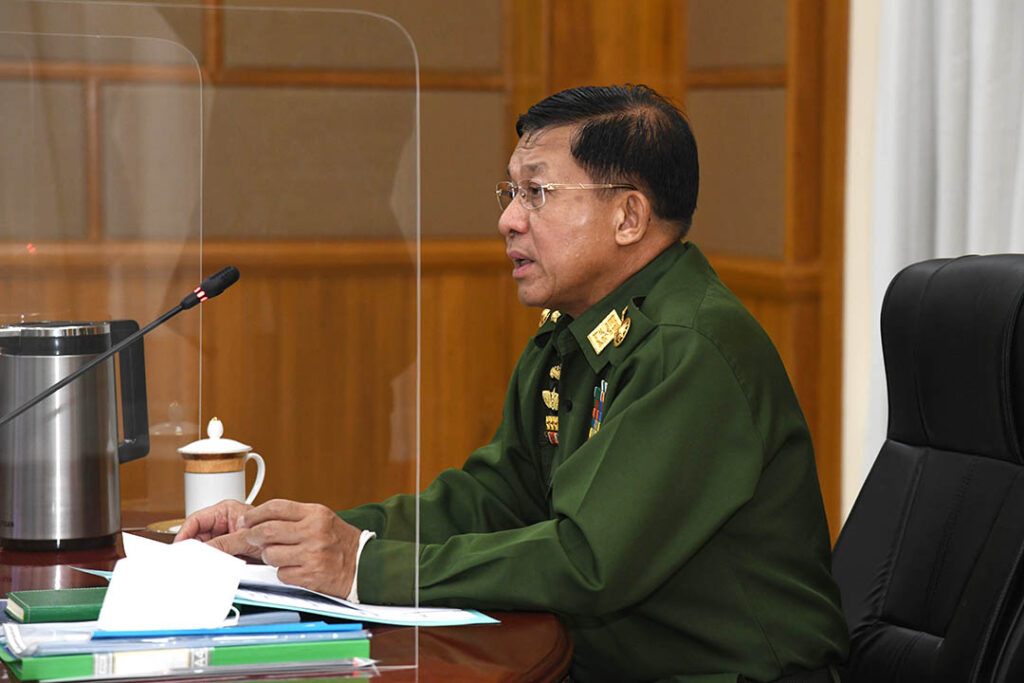
In his keynote address, the Senior General said it was the first meeting on the peace process after the Council had assumed the administrative duties of the State. The Central Committee, the work committee and the coordination committee were set up to carry out the peace process more extensively. As regards the peace, the Council has adopted the work programme “Emphasis will be placed on restoring eternal peace in the entire nation in line with agreements from the Nationwide Ceasefire Agreement (NCA) as much as possible” in its five future programmes, and it has also laid down the objective “Emphasizing of restoration of eternal peace for the entire nation in line with the Nationwide Ceasefire Agreement (NCA)” in its political objectives.
In fact, NCA is the foundation of the design to build a Union based on the federal system and democracy, as aspired by all nationalities, through the ceasefire.
A comprehensive type of Union will appear only if we find answers through coordination and realize the agreements based on NCA. In this process, the observance of the democratic culture of solving an issue through dialogue is so important. However, the problem is huge it can be reduced through dialogue. The Senior General said he had requested the previous government in person for many times to hold the National Defence and Security Council meeting as stipulated by the Constitution with the wish to improve the civil-military relations. But the request was ignored again and again. Moreover, the repeated calls for holding dialogues between UEC and political parties, the special session of the Pyidaungsu Hluttaw and the NDSC meeting to solve the problem of vote-rigging were also rejected.
So, the Tatmadaw has to inevitably assumed the duties entrusted by the Constitution. The government wishes to emphasize the point that national unity and peace can be restored through dialogue in accord with the democracy culture.
As one of five future programmes of the State Administration Council mentions that emphasis will be placed on restoring eternal peace in the entire nation in line with agreements from the Nationwide Ceasefire Agreement (NCA) as much as possible, all parts of tasks can be done apart from approvals at the Pyidaungsu Hluttaw. Although it can be assumed that such tasks cannot be done due to lack of Hluttaw representatives and political parties, representatives of currently existing political parties will be elected representatives upon completion of the forthcoming election and the party which won the majority of seats must form the government to assume the duty. As such, the current political party group and government group can continue the political dialogue. By continuously undertaking the peace process, efforts can be made for restoring eternal peace all the people aspire.
Even though concepts are diverse in democracy and federalism in building the Union based on democracy and federalism, it is necessary to choose the system suitable for the country. With regard to democracy, it is necessary to follow the wish of the majority as well as to emphasize the wish of the minority. Somebody discriminate and commit punishment of social affairs against others as enemies whose concepts are not conformity with them to set aside the formers the society. Such acts are based on ideas of social discrimination in the slavery era, which does not totally conform with democracy. The extreme personal cult may cause disunity in the society, harming the national unity. Hence, it is necessary to consider personal cult and discrimination not to be practised in society.
Although everybody expresses various definitions and standards of federalism as they like, its essence is consolidation and harmony. The federal means the practice in sharing of three powers over the consolidated regions, states, national races and ethnics. In so doing, regions and states will have the rights of self-administration, self-legislation and self-determination in accord with the respective region and state constitutions by sharing powers among the Union, regions and states in accord with the State constitution. There is no region or state where a single ethnic people reside in Myanmar. All the regions and states are home to multiple national races. It can be seen that various ethnics are living in regions.

According to the national census of 2014 for example, Shan State has a population of over 5.8 million with ethnic Shan representing 35.23 per cent, Bamar 11.44 per cent, Pa-O 8.94 per cent, Palaung 7.06 per cent, Wa 6.41 per cent, Danu 4.4 per cent, Kokang 3.22 per cent, Lahu 4.05 per cent, Jingphaw 2.35 per cent and other ethnic groups 16.84 per cent. Likewise, Kachin State has a population of over 1.6 million with Bamar representing 29.2 per cent, Shan 23.6 per cent, Jingphaw 18.97 per cent, Lisu 7 per cent, Rawam 5.5 per cent, Lawwaw 3.33 per cent, Lacheik 2.89 per cent, Zaikwa 1.57 per cent and other ethnics 8 per cent. Shan State has just over 35 per cent Shan people and Kachin State just over 39 per cent Kachin people. The establishment of states based on national race has led to demands for their own states with their own names. The Senior General expressed his assumption that the emergence of a state based on a name representing all national races living inside, not a single national race, could contribute much towards national unity. So all are urged to consider and seek a solution to this matter, he said.
Today’s peace efforts are being made as a national duty in order to pass on a legacy of building a stable future and a developed world-class nation to the future generations to come. These efforts are not meant for self-interests or for the reputation of a person.
After the takeover of the country in accord with the Constitution, measures will be taken to ensure required peace and stability and help the election-winning party form a government. During the period, the ongoing processes including the peace effort in respective regions will continue without losing momentum. Moreover, the systems contrary to the constitution and the processes detrimental to national unity and national security will be mended in line with the Constitution and other existing laws. And these efforts mean that the Tatmadaw is doing national politics with the aim of protecting national interests, the Senior General added.
Lt-Gen Tin Maung Win, joint secretary of the National Unity and Peace Restoration Central Committee, explained the holding of Union peace conferences and signing of the agreements, formation of peace committees, holding of exclusive meetings between the government and NCAs-EAO leaders and issuance of statements, holding of peace process-related meetings, signing of part 3 of the Union Agreement, step-by-step implementation of future programmes beyond 2020, continuation of the remaining points for the basic principle agreements and discussion about the peace process between government, Hluttaw and Tatmadaw delegate groups.
As one of five future programmes of the State Administration Council mentions that emphasis will be placed on restoring eternal peace in the entire nation in line with agreements from the Nationwide Ceasefire Agreement (NCA) as much as possible,
Next, central committee members Jeng Phang Naw Taung, Mahn Nyein Maung, Daw Aye Nu Sein, Saw Daniel, and U Sai Lone Hsaing explained the need to form more peace task forces to facilitate the peace process in Kachin State, hold informal meetings frequently with ethnic armed organizations, return of displaced people to their homes, ensuring that all ethnic armed organizations sign the NCA under the State Administration Council, ensuring that Rakhine State achieves eternal peace through ongoing temporary ceasefire, returns of IDPs to their homes, the release of timely correct information against rumours and fake news, building of trust in the peace process, reconstitution of state-level committees and inclusive participation of all ethnic groups in the peace process.
Then, the Senior General discussed the peace process, saying the committees will be formed at the state level and measures will be taken for the return of internally displaced persons and convenience of their living as soon as possible. Differences over the Tatmadaw will be discussed and the Tatmadaw is just performing the regular duties for national defence. Efforts will be made to pave ways for non-signatory EAOs to sign the NCA and it is necessary for EAOs to take the peace path. Democratic rights should be enjoyed by all national races.
At the current stages of the peace process, it is necessary to hold dialogues in four phases uninterruptedly. Informal and formal dialogues should be organized as may be necessary. To strengthen the ceasefire, it is necessary to hold bilateral talks continuously in accordance with provisions of the NCA until formal meetings and peace conferences can be held under the NCA. In the implementation of national unity and peace, it is important to implement five guidelines, including (a) building a Union based on democracy and federalism, (b) realizing national unity and peace by adopting the democracy culture of dialogues, (c) developing strategies for national unity, (d) formulating and materializing projects for rehabilitation and development together with the implementation of the peace process, (e) conducting research into root causes of divisions in the society to prevent them.
The work committee is required to develop timetables and strategies, which will be implemented by the coordination committee. The meeting of the central committee will be held occasionally as may be necessary. The work committee is required to implement matters related to development, IDPs, and the interim period included in Chapter (6) of the NCA in negotiation with relevant union ministers and chairmen of state and region administration councils. Detail negotiations are to be carried out by the coordination committee. In conclusion, the Senior General urged the committees to try to strike a balance between peace and development as they are directly proportional to each other.—MNA

